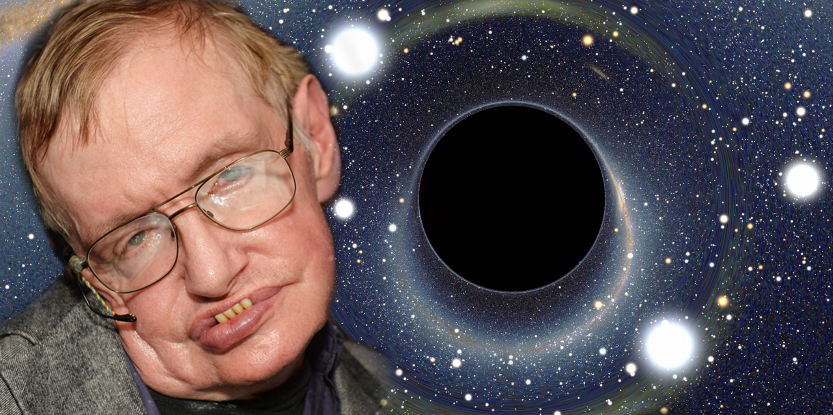

Then, in 2004, Hawking gave approval on conserving the information. He initially believed that his findings were lost from the universe, but US physicist Leonard Susskind disagreed and these ideas were termed as the information paradox. He also researched whether the light or the particles entering a black hole got destroyed or not in case of evaporation.These tiny black holes are believed to have ended their lives in a powerful explosion. These tiny black holes would have been too hot that let them shedding the mass until they vanished. In one of Stephen Hawking's theories, you can see his predictions on the existence of mini-black holes during the Big Bang.The reason for this is the quantum effects that occur in a region called the event horizon which is near the edge of the black hole. And, they have a tendency to lose mass gradually during this process. He researched that black holes release energy (which is termed as Hawking radiation).He explained along with the Oxford mathematician Roger Penrose that the Big Bang (if it was there) must have started from a singularity i.e.What are Stephen Hawking's Significant Discoveries? His intelligence quotient needs no proof as his work and discoveries speak about the same. People who boast about their IQ are losers." But, when he was asked about the same in a 2004 interview with The New York Times, his reply was: "I have no idea. Where a normal IQ level range is anywhere between 85 and 115, Stephen Hawking's IQ was 160. He went to Cambridge University after graduating from Oxford to pursue further studies in cosmology. This made him choose physics and to be precise, cosmology. He wanted to study mathematics, but unfortunately, Oxford didn't offer a degree in that specialty. Not only this, but he has also made some theoretical predictions regarding the black holes emitting the radiations. The author of several popular science books, including ' A Brief History of Time', Hawking worked on the groundbreaking theorems regarding singularities within the framework of general relativity. SEE ALSO: 17 TOUCHING TWEETS THAT PAID TRIBUTE TO LEGENDARY SCIENTIST STEPHEN HAWKING Who Was Stephen Hawking and What Was He Known for? Source: Doug Wheller/Wikimedia Commonsīorn on January 8, 1942, Stephen Hawking was a popular British figure - a theoretical physicist who has made significant contributions in various fields including cosmology, quantum gravity, and general relativity.

Today, let’s discuss about this renowned and inspirational British scientist who is best known for his work on explaining the origins of the universe and black holes. He died at the age of 76 after suffering from a long time disease called amyotrophic lateral sclerosis (ALS) that left him paralyzed for decades. It's 14th March, the day when the legendary Stephen Hawking left for the heavenly abode.


 0 kommentar(er)
0 kommentar(er)
